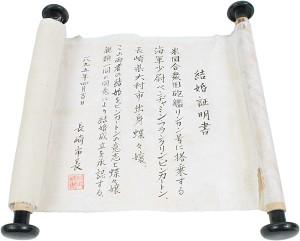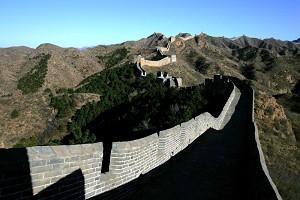TAIPEI - In the wave of Chinese learning abroad, the Chinese communist regime tries it best to popularize simplified Chinese via its robust political and diplomatic tactics. Many people fear that traditional Chinese, which is used in Taiwan and overseas Chinese communities, is in danger of being marginalized and eliminated. Chinese character experts, however, point out that on the surface, traditional Chinese appears to be in an inferior position, but time may prove that it may be in a better position in the long run because of its cultural heritage and beauty.
The Chinese regime spares no efforts to promote simplified Chinese learning around the global. Many foreign learners have to choose simplified Chinese in order to write easily and to gain better access to the huge market in China. Professor Xinfa Cai in the Department of Applied Chinese at Ming Chuan University, a Taiwan’s top international university, expressed that the background of China promoting simplified Chinese must be understood before judging which version is better. In 1956, mainland China officially simplified thousands of Chinese characters, with an intention to wipe out illiteracy. However, the present promotion of simplified Chinese by the Chinese government is based more on political factors than cultural factors.
Xinfa Cai added, there are no reasons right now for the promotion of simplified Chinese. Mainland China failed to eliminate illiteracy through using simplified Chinese. In addition, using computers to input Chinese has also made the traditional characters less difficult. In fact it is easier to learn the structure of the traditional characters than the simplified ones.
He said, “Every one has his conscience.” Many scholars in mainland China agree with the advantages of the traditional Characters. Without political factors, there is a mutual agreement between scholars on both sides of the Taiwan Straits regarding the orthodox and beauty of the traditional Chinese characters.
For example, once he attended an international conference. In private, a mainland scholar patted his shoulder and expressed that he agreed with the cultural heritage and orthodoxy of the traditional Chinese characters. But, the next day the same scholar was very much against it at the conference. After the conference he drove the scholar to the airport and the scholar made an apology, “Do not mind my speech yesterday, please!”
Xinfa Cai explained, politics make many scholars in mainland China lose their standing. During the Cultural Revolution, the Chinese Communist regime carried out the “Breaking with the Four Olds Movement” aiming at destroying Chinese traditional culture. Confucius and the theory of Confucianism were regarded as worthless. Statues of Confucius were destroyed everywhere. But right now Confucius is treated as a supreme sage again. Therefore he thinks traditional Chinese, which conveys a long history with a deep cultural background, is only inferior temporarily. If the Taiwan government persists in taking a stand and does not accept any complaisance, time will prove the value of the traditional Chinese characters.
Qingyun Xu, a professor in the Department of Chinese at Dongwu University, said that the traditional characters are art crystals and national treasures. Even if the mainland regime keeps up the promotion of the simplified Chinese, people will prefer the traditional characters for its cultural heritage.
Xu added, many ancient monuments were inscribed with traditional Chinese characters. All of the treasured calligraphies and paintings in the Imperial Palace were written in traditional Chinese too. Whatever mainland China changes into, it is impossible to turn ancient art pieces into simplified characters. People in mainland are not able to read ancient monuments when visiting famous historical and cultural sites and they are not able to understand the calligraphies when visiting the Imperial Palace. It is such a pity that Chinese people do not know how to appreciate ancient culture. Therefore they will have the need to improve their appreciations of the traditional culture, and would like to return to studying traditional Chinese.
Fengwu Zhou, a professor from the Department of Chinese at Taiwan University, pointed out that China has accredited its backward economy to Chinese characters since the May 4th Movement in 1919. And the fact that mainland China promotes the use of simplified Chinese can be treated as a continuation of the ideology of this movement. The illiteracy rate in Taiwan and Hong Kong (where traditional Chinese is used) is far lower than in China. It appears traditional Chinese contribute more to the elimination of illiteracy and popular education than simplified Chinese, therefore mainland China should use the traditional Chinese system as soon as possible.




